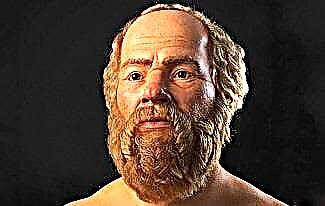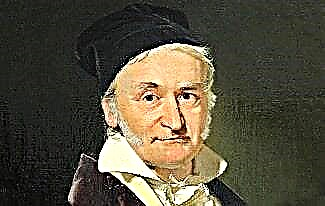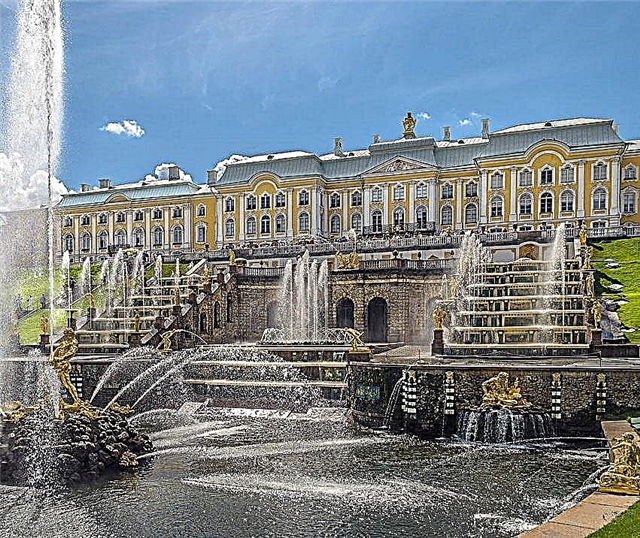Adam Mickiewicz got into the poetic pantheon not because of his great poetic talent. The Poles, the number of literary talents among which can be counted on the fingers of one hand, call him one of the greatest classics of romanticism. Together with Z. Krasinskiy and Yu. Slovatskiy. This is how the definition wanders from one biographical article to another: NN together with XX and YY are the greatest classic of romanticism. Only the names are reversed.

Anyone who fought in any way against tsarism was in line with Soviet criticism. This is how chemists appeared who did not make a single discovery, astronomers who did not discover a single star, writers without published books - if only they fought against the autocracy, and, preferably, to death. And as for Mitskevich, about whom even Pushkin spoke warmly, God himself ordered to declare a classic. So Mitskevich, whose works were translated only into the languages of the peoples of the USSR, almost became a world classic. Here are just a few events from the life of the greatest representative of Polish romanticism:
1. Like one famous character in Russian politics, Mitskevich was the son of a lawyer.
2. Mickiewicz never lived permanently on the territory of Poland in all its guises (in 1815 Poland underwent the third partition and turned first into the Duchy of Warsaw, and then into the Kingdom of Poland). He was born in Lithuania, lived in Russia and Europe.
3. The Mickiewicz family, who raised their son in the spirit of Polish patriotism and suffering from enslavement by the Russians, had the best house in the city
4. Mickiewicz's father, who longed for Napoleon to defeat Russia and liberate Poland, died on the very eve of the Napoleonic invasion. The death of his father and the collapse of Napoleon in Russia were the most powerful impressions in Adam's childhood.
5. Despite the extremely anti-Russian views, Mitskevich entered the university on the state budget - his studies were paid for by the hated Empire.
6. At the university, Adam formed a secret society of lovers of science, within which there was a completely secret society of friends of virtue.
7. Mickiewicz's first poem "Winter" was published during his years at the university.
8. Tsarism not only gave Mickiewicz an education, but also immediately provided him with work in a gymnasium in Kaunas, then called Kovno. Mickiewicz considered the workload of 20 hours a week disastrous.
9. Being busy at school did not prevent the poet from writing his poetry collections “Ballads and Romances”, “Grazhina” and two parts of the poem “Dzyady” (Wake).
10. Loyal biographers call Mickiewicz a victim of provocation by Nikolai Novosiltsev, who actually ruled Poland in those years. They say that Novosiltsev wanted to demonstrate to Alexander I a large conspiracy and inflated the innocent conversations of Polish youth almost to the point of rebellion. In fact, the case was blown up by the "victims" who began to race to lay their comrades. Mickiewicz spent about a year in prison, and then was sent into “exile” - from Lithuania to Russia.
11. In exile, Adam lived in St. Petersburg, Odessa, Crimea and Moscow, everywhere holding public office and not experiencing any particular constraint in money.
12. The enthusiastic attitude of the Russian intelligentsia and nobility towards Mickiewicz can be explained quite simply - in any Pole they saw a representative of an oppressed but progressive people. Still, at one time even the future French king ruled the Poles!
13. In 1829, unbearable disgrace ended with a departure for Paris.
14. Mickiewicz, as biographers write, “tried unsuccessfully” to join the Polish uprising of 1830. At the same time, the reasons why he failed to participate in a full-scale war were not disclosed. Mickiewicz actively wrote articles in the European press and instructed Count Lubensky in his own house not far from Dresden.
15. The participation of the poet in the Crimean War was about the same. Thousands of Polish volunteers fought on the side of the European coalition against Russia, but Mickiewicz prudently organized their dispatch to the troops from Constantinople.
16. In France, Mickiewicz taught Latin and Slavic studies, but even the liberal French authorities did not like his propaganda of Polish exclusivity, and Mickiewicz was fired. Who in Catholic France in the 1840s would have liked a public statement like “Poland is the only Catholic country in the world”?
17. Adam repeatedly tried to marry, but the parents of his chosen ones categorically did not want to give their daughters for a person without a clear source of income and any property.
18. In 1834, Mickiewicz in Paris married a Polish emigrant Celina Szymanowska. Due to the endless betrayal of her husband, the spouse quickly began to suffer from severe psychosis. She managed to recover thanks to another Pole, Andrzej Tovianski, who was known as a mystic and clairvoyant. In marriage, the Mitskevichs had 6 children.
19. The last poetic work of Mickiewicz was the poem "Pan Tadeusz", published in 1834. The description of the morals of the small-class gentry in Poland is considered a national epic and a literary masterpiece.
20. Mickiewicz died of cholera in Constantinople in the midst of the Crimean War, never having managed to put together his own Polish legion. His body was buried in Turkey, in Paris, and the poet finally reposed in Krakow.









